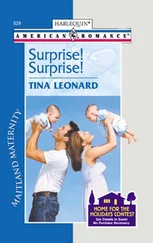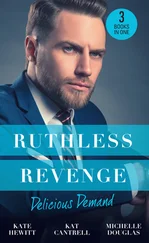The town is just the right size for Daniel. Now he never has to contend with crowds or traffic or unwanted intrusions on his private space. Leaving people alone is an art form here in Winnock, universally practiced. How fitting, Daniel thinks, that Alina, with her unerring instinct for solitude, found her way here.
What he didn’t expect is that he would be the beneficiary of that decision. At first he didn’t see the isolation as an asset. When Alina pointed out the road into town and told him he’d have to walk the two miles, Daniel felt it as an impossibility. All that open space. Just the thought of it set his heart racing.
But what were his choices? If he wanted to eat, he had to find a way to get into Winnock and buy food. One option was to ask Alina to drive him, but she had made it very clear that she was far too busy to be concerned with his life. “You’ll have to fend for yourself” was a blunt and unambiguous message, exactly what his daughter must have felt decades before, Daniel understood, when he abruptly moved out of the family house and his children’s lives.
Alina had made it quite clear that she wasn’t inclined to help him out in any way. He could ask again. He could explain about his condition, but he had just enough of a shred of dignity left not to plead for mercy.
And so that left the only other option: walking into town on his own.
That first day, that first attempt, felt to Daniel like he was walking to his own execution, even as he knew how ridiculous he was being. What was being asked of him but putting one foot in front of the other along a perfectly delineated path? His rational mind tried to rein in his rampaging anxiety, with no success.
His heartbeat ricocheted into overdrive as soon as he set out. He was immediately sweating and felt dizzy and breathless and had to sit down twice on the blacktop with his head between his knees because he was sure he was going to pass out on this desolate road with nothing beyond it but vast fields of grasses and chaotic wildflowers. How glad he was that there was no one to witness his foolishness, his crippling inadequacy.
But then the road dipped into a large section of woods, and once inside the dense trees — blue spruce and fir trees which towered up to the sky and shut out the sunlight, maple and oak trees whose green leaves shaded and cooled the air — things got a little better. Daniel felt sheltered by the trees. Protected somehow, given a respite from the open space before and after. It astonished him that he was outside a building and yet his rapid heartbeat and ragged breathing had begun to ease a bit.
He made it into town that first day, exhausted from the physical exertion and the emotional distress, and ashamed. It wasn’t a walk he wanted to repeat, and yet he had to, and each time the woods provided the oasis he needed to gather himself, to continue on. An astonishment.
Over the weeks and months, the imperative to buy food to keep his body alive slowly worked to bring his spirit alive. He began to sing as he walked. At first it was a hedge against his rising panic, then it became a necessary component for the whole enterprise. He walked and he sang to himself, songs from his youth chosen for their appropriateness or irony, depending on his mood — Elvis Presley’s “It’s Now or Never,” Dinah Washington’s “What a Difference a Day Makes,” Roy Orbison’s “Only the Lonely.” On particularly bad days, he would make himself sing out “We Shall Overcome,” even though he felt it was some kind of blasphemy.
The more he walked, the more manageable the task became. The more manageable it became, the more he liked himself, until finally Daniel found he could breathe more easily in the countryside wherever he was.
All the doctors’ advice, all the medication suggested, all the fruitless hours of struggling to get his agoraphobia under control, and slowly, over the past two years, his panic has retreated. And he’s grateful, supremely grateful, that his days aren’t ruled by the anxiety that had a stranglehold on him in Los Angeles, in Colorado, in Iowa.
Maybe his whole previous life in various cities was the mistake. Maybe his alcohol-fueled years, when he was surrounded by plenty of companions whom he once considered friends, had only worked because of the booze and he was really meant to be a hermit.
Maybe he should stop shaving and grow a foot-long beard, let his hair have its own way and fall across his shoulders in busy waves, stop washing his clothes and dispense with all footwear. But he doesn’t do any of that. Instead he finds he takes better care of himself here in Winnock than he ever did before.
The walking everywhere has helped him lose twenty pounds. The fact that he has to shop and cook his own food now and that it is simple and fresh makes him feel better. Gordon Tibbett’s grocery has become his twice-weekly destination. And Marie, Gordon’s wife, who is old enough to be his mother and treats him that way, helps him choose what to buy and gives him tips on how to cook it.
Although their conversation never strays far from the culinary realm, she somehow lets him know she’s proud of him — for making it on his own, for turning a corner in his life — and Daniel has come to depend on these conferences in the middle of the produce aisle to anchor his week and point him in the right direction.
And he sleeps well at night! For the first time in over ten years.
All these things are a revelation to him — the waning of his anxiety, the feeling of well-being, the pleasure he takes in walking everywhere. Could it be that it has taken him fifty-six years and so many mistakes to find the life he should have been living all along?
The only thing he regrets is his loneliness, but he has formed a shaky truce with that. If the price he has to pay for peace, for his newly won freedom from anxiety, is isolation, he will make that bargain every time.
But then there is Alina — so close in physical proximity, just across the meadow, and so distant still.
Despite her admonition that first day that she had no time or inclination to be involved in his life, he tried the first few weeks to extend a tentative hand to his daughter. He would cross the meadow — the DMZ, as he thought of it — and show up at her studio door. Always knocking first, he would step gingerly across the threshold.
The spotted dog, some kind of beagle-bloodhound mix, he guessed, with its long, floppy ears and loose-jowled face, always curled up at Alina’s feet, would raise its head and growl, a low, sustained warning that he wasn’t wanted. And his daughter, hunched over the potter’s wheel, gently guiding a mound of clay up into a cylinder, one hand inside, the other matching on the outside surface, coaxing, urging the spinning clay into a delicate shape, wouldn’t look up.
“Knock, knock,” Daniel would say softly as he stood a few feet inside the barn, in an attempt to evoke a private joke they had shared at a time when all was well between them. “Knock, knock,” he would repeat hopefully.
At three and a half, Alina had become obsessed with knock-knock jokes. She had learned them from the older kids in her nursery school, and she would throw herself into Daniel’s arms when he walked through the door in the evening and demand, “Knock, knock, Daddy.”
“Knock, knock,” he would comply, frantically searching his brain for a new one.
“Who’s there?” Alina would ask.
“Ummmm…Lettuce!”
“Lettuce who?”
“Lettuce in, it’s cold out here.” Daniel would shiver with a convincing chill, and Alina would rock with laughter.
“Another one!” she’d demand.
“Knock, knock.”
“Who’s there?”
“Figs.”
“Figs who?” she’d ask, her eyes big with anticipation.
Читать дальше












